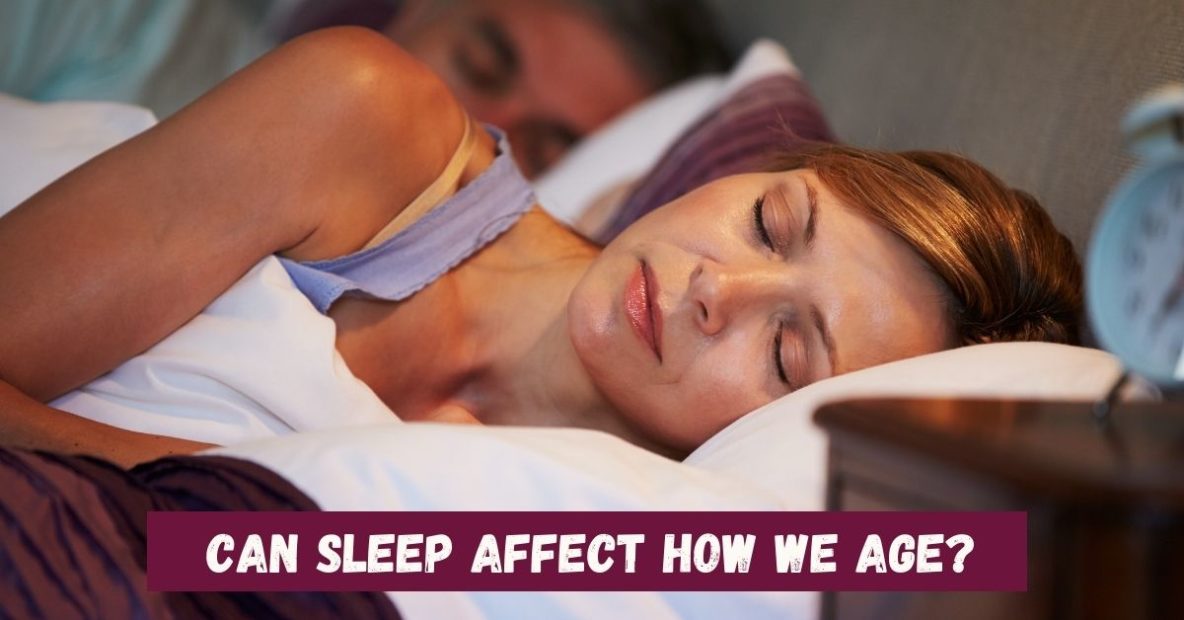Can Sleep Affect How We Age?

- A Promising Paradigm Shift: New Research Challenges the CPAP-First Approach to OSA Treatment - September 5, 2023
- Understanding Sleep Meditation Techniques - July 30, 2021
- How Online Learning Has Affected Sleep for Students - July 13, 2021
Have you been noticing bags under your eyes, or did you discover a new wrinkle line on your forehead? Sleep plays a role in aging, and getting enough sleep can keep you healthy as you head towards middle age or retirement. Not only that, but aging can also affect the quality of your sleep! Let’s untangle the connection between sleep and aging.
How Does Aging Affect Sleep?
Older adults often complain of sleep problems. They report a lower quality of sleep, and spend less time sleeping per night. Changes in lifestyle, such as retiring and spending more time at home, can also affect the quality of sleep. Sleep disturbances can also be due to chronic pain, changes in mental health, or just as part of the aging process.
Aging can affect the circadian rhythm, your body’s internal clock. The circadian rhythm controls a number of functions, including appetite, digestion, and sleep regulation. Aging can disrupt the circadian rhythm, making older adults experience sleep disturbances.
How Does Sleep Affect Aging?
If you experience one poor night of sleep, you may feel groggy and tired the next day, but a night of good sleep can restore your energy levels. If you haven’t been sleeping well, you’ll start to live with daily fatigue. Sleeplessness can cause changes in mood and emotion. It will also make you more easily frustrated, upset, or sad. Lack of sleep can also make it difficult to concentrate on tasks, stay alert, and even remember facts and events.
Poor quality sleep can affect the aging process. You’ll have a weaker immune system, and a greater risk of high blood pressure, high cholesterol, digestion issues, and diabetes. Lack of sleep makes it harder for your body to repair itself, and poor sleep can speed up the aging process.
Sleep Tips for Adults
Getting enough sleep each and every night is important for your emotional, mental, and physical health. If you’ve been having a hard time falling asleep or staying asleep, here are some sleep tips to help you get a good night’s sleep.
-
- Stay active: One of our best recommendations is to stay active. If you exercise regularly, you’ll fall asleep faster and have a better night’s sleep. Exercising is also good for your heart, your physical health, and your mood.
- Get rid of distractions: Your bedroom should be reserved for sleeping. If you want to sleep soundly at night, get rid of all the distractions in your bedroom. Remove your bedroom TV, and leave your phone in another room. This will help you associate your bed with sleeping and help you fall asleep easily and deeply.
- Limit caffeine: Drinking coffee in the later afternoon or evening can impact your sleep. Limit caffeine intake, and avoid drinking coffee, black tea, and soda in the evening.
- Stick to a routine: One of the best ways to fall asleep on time is to stick to a sleep routine. Get up at the same time each morning and go to bed at the same time each night. You’ll be working with your circadian rhythm to get a great night’s sleep every night.
- Get some sun: Another factor that can affect sleep is sunlight. Many older adults don’t spend enough time in the sun, and this can impact the circadian rhythm. Make sure you spend some time outside every day, or sit in front of a very bright window so that you’re getting enough sun.
- Avoid long naps: It’s ok to have a 20 minute nap, but avoid taking long naps. Sleeping for an hour or two in the afternoon can disrupt your sleep cycle and make it harder to get a good night’s rest.
- Relax in the evening: It’s hard to fall asleep if your mind is still racing with all the stress of the day. Take the time to wind down before getting into bed. Do an activity that makes you feel relaxed. This could be reading a book, taking a bath, or spending time with a loved one.
Sound Sleep Medical
Are you having a hard time getting enough sleep? Are you worried how this lack of sleep will affect aging? Visit us at Sound Sleep Medical to learn more about the importance of sleep, and how to make sure you’re sleeping soundly every night.
